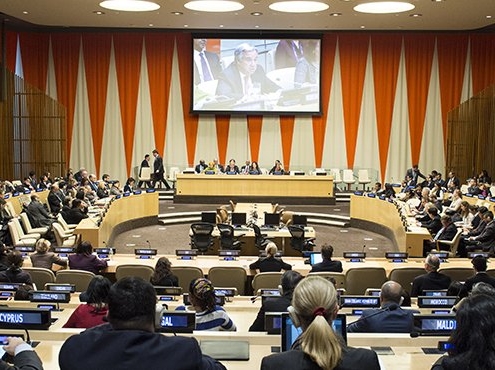Economic and Social Council
Main article: United Nations Economic and Social Council
The Economic and Social Council (ECOSOC) assists the General Assembly in promoting international economic and social co-operation and development. ECOSOC has 54 members, who are elected by the General Assembly for a three-year term. The president is elected for a one-year term and chosen amongst the small or middle powers represented on ECOSOC. The council has one annual meeting in July, held in either New York or Geneva. Viewed as separate from the specialized bodies it co-ordinates, ECOSOC’s functions include information gathering, advising member nations, and making recommendations. Owing to its broad mandate of co-ordinating many agencies, ECOSOC has at times been criticized as unfocused or irrelevant.
ECOSOC’s subsidiary bodies include the United Nations Permanent Forum on Indigenous Issues, which advises UN agencies on issues relating to indigenous peoples; the United Nations Forum on Forests, which coordinates and promotes sustainable forest management; the United Nations Statistical Commission, which co-ordinates information-gathering efforts between agencies; and the Commission on Sustainable Development, which co-ordinates efforts between UN agencies and NGOs working towards sustainable development. ECOSOC may also grant consultative status to non-governmental organizations;[110] by 2004, more than 2,200 organizations had received this status.

